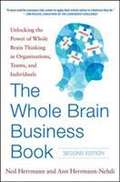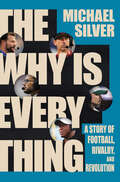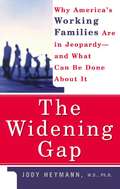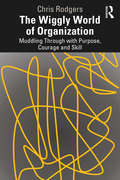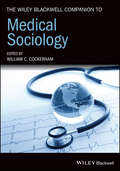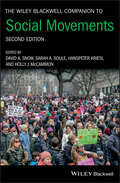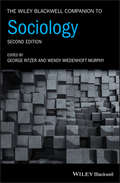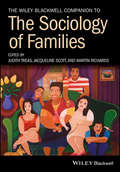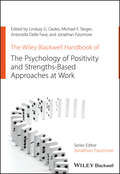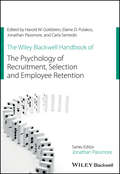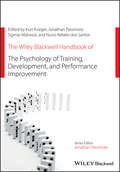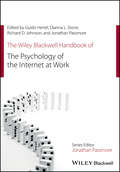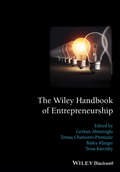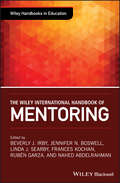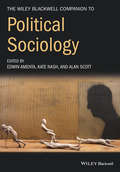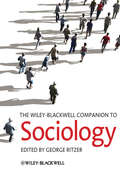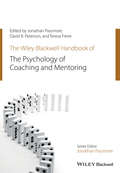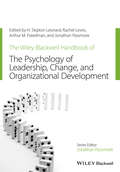- Table View
- List View
The White Welfare State: The Racialization of U.S. Welfare Policy
by Deborah E. WardThe White Welfare State challenges common misconceptions of the development of U.S. welfare policy. Arguing that race has always been central to welfare policy-making in the United States, Deborah Ward breaks new ground by showing that the Mothers' Pensions--the Progressive-Era precursors to modern welfare programs--were premised on a policy of racial discrimination against blacks and other minorities. Ward's rigorous and thoroughly documented analysis demonstrates that the creation and implementation of the mothers' pensions program was driven by debates about who "deserved" social welfare and not who needed it the most. "In The White Welfare State, Deborah Ward assembles a powerful array of documentary and statistical evidence to reveal the mechanisms, centrality, and deep historical continuity of racial exclusion in modern 'welfare' provision in the United States. Bringing unparalleled scrutiny to the provisions and implementation of state-level mothers' pensions, she argues persuasively that racialized patterns of welfare administration were firmly entrenched in this Progressive Era legislation, only to be adopted and reinforced in the New Deal welfare state. With rigorous and clear-eyed analysis, she pushes us to confront the singular role of race in welfare's development, from its early 20th-century origins to its official demise at century's end." --Alice O'Connor, University of California at Santa Barbara. "This is a richly informative and arresting work. The White Welfare State will force a reevaluation of the role racism has played as a fundamental feature in even the most progressive features of the American welfare state. Written elegantly, this book will provoke a wide-ranging discussion among social scientists, historians, and students of public policy." --Ira Katznelson, Ruggles Professor of Political Science and History, Columbia University. "This book offers an original and absorbing account of early policies that shaped the course of the American welfare state. It extends yet challenges extant interpretations and expands our understanding of the interconnections of race and class issues in the U. S. , and American political development more broadly." --Rodney Hero, University of Notre Dame.
The Whole Brain Business Book: Unlocking the Power of Whole Brain Thinking in Organizations and Individuals
by Ned Herrmann Ann Herrmann-Nehdi<p>If you think your business can’t get any better, think again. Thanks to the power of Whole Brain® Thinking, you can apply what we know about thinking and the brain to transform your organization at every level. Whether you’re struggling to keep up with a changing market, stuck with a tired business model, or challenged by difficult colleagues, the proven methods in this updated guide will help you. <p>This revised and expanded edition features the latest brain research, updated real-world examples, and more actionable content than ever before. In addition to new stories, data and “mind-hacks”, you’ll find Herrmann’s timeless tips for getting unstuck, identifying the four thinking preferences, and applying research-based techniques that have been proven to work in any business environment around the world. By building and strengthening your thinking agility, you’ll be able to work more effectively with others―and leverage the best thinking around―so you can avoid costly delays, missed opportunities, and other business risks. Using the book’s point-by-point action steps, insightful case studies, and emerging thought trends, you can really put your mind to work―and get brilliant results. <p>The Whole Brain Business Book will help optimize your management approach, align your organization and strategy, and fully engage your own brain as well as the brains of others to work smarter, faster, and better than you ever thought possible.</p>
The Why Is Everything: A Story of Football, Rivalry, and Revolution
by Michael SilverFrom an award-winning journalist, the inside story of the brilliant, hypercompetitive young coaches who threw out decades of received wisdom to fundamentally remake America’s most popular sport. When Kyle Shanahan became the NFL’s youngest offensive coordinator in 2008, he had one prevailing rule: Tell me the why. If a colleague couldn’t justify his position by providing the unassailable reasoning behind it, he was told to get the hell out of Shanahan’s office. Shanahan and the members of his coaching tree—including Sean McVay, Mike McDaniel, Raheem Morris, and Matt LaFleur—came up in a sport where innovation was the exception, not the rule. There had been brilliant football minds before, from Paul Brown to Bill Walsh to Bill Belichick. But for the most part, coaches learned a particular system and stuck to it no matter what—no matter the players on their team, no matter what the opponent might do. This group of young coaches would change all that. The Why Is Everything is the story of old dogmas falling before astonishingly creative new strategies and game plans. Drawing on unmatched access across the league, longtime NFL reporter Mike Silver takes us into the key moments in this still-unfolding revolution, from the education of Mike Shanahan, Kyle’s father and a two-time Super Bowl champion, in the 1980s; to the Washington Redskins’ football laboratory in the early 2010s, where the coaches first worked together, shocking the league with their cutting-edge scheme for rookie quarterback Robert Griffin III; to McVay’s Super Bowl victory in 2022 and Kyle Shanahan’s Super Bowl agony in 2019 and 2024. Less than a decade after their emergence, these men are the stars of their profession and have helped propel the NFL to new heights of viewership and drama. With The Why Is Everything, Silver reveals how it all happened, and in the process gives us a timeless account of friendship, rivalry, and the never-ending pursuit of perfection.
The Widening Gap
by Jody HeymannThis hard-hitting book draws on the first systematic national research on how the need to meet family obligations is affecting working Americans of all social classes and ethnic groups. What happens when kids get sick? When an elderly parent is hospitalized? How do poor families cope with work-family demands? Jody Heymann's research points to a widening gap between working families and the health and development of children. Outdated labor policy and practice must be brought into the twenty-first century, argues Heymann. To do less is to abandon the precepts of equal opportunity on which America is founded.
The Wiggly World of Organization: Muddling Through with Purpose, Courage and Skill
by Chris RodgersThe well-ordered, fully aligned view of organization and management practice, with its unfailingly positive results, bears little relationship to the world that managers and others experience every day. This straight-line, ‘do this and you’ll get that’ idealization is far removed from the wiggly reality. Despite this, the former continues to dominate the ways in which management is spoken about and judged in formal organizational arenas and wider society. This creates unrealistic expectations of what managers (from CEO to the front line) can sensibly achieve independently of the actions of others. Crucially, too, it distorts the ways in which they and others account formally for their actions. And so, the fantasy continues. Against this background, the book offers a radically different way of thinking about, and engaging with, the irreducible complexity of organization and management practice. Using straightforward language throughout, it sets out to help managers and others to become consciously aware of what they already know deep down about how organization works and what they – and everyone else – are actually doing in practice. It then offers a practical approach to everyday practice that takes complexity seriously. Armed with these new insights, readers will be better placed to apply their innate understanding and practical judgement to the demands that they and others face day to day. Whether these arise from their roles as managers, other practitioners, policy makers, regulatory authorities, or participants more generally.
The WikiLeaks Paradigm: Paradoxes and Revelations
by Stephen M. MarmuraWikiLeaks poses a unique challenge to state and commercial institutions. This book considers the whistleblower platform’s ongoing importance, focusing on the informational and communicative paradoxes it faces, and the shifting strategies it has adopted over time. Attention to these matters provides insight into the nature of the contemporary networked, post-truth media environment, and the types of factors likely to affect the success of activist groups today. Chapter 1 introduces WikiLeaks’ significance as a novel expression of counterpower, outlining the disclosures marking its career. Chapters 2 through 4 address the dilemmas confronting WikiLeaks in its attempts to engage the public with and without the cooperation of mainstream news organizations. Chapter 5 appraises how WikiLeaks has adjusted its strategies to take better advantage of a densely populated and globally networked media environment within the larger context of an ongoing political legitimation crisis. Chapter 6 extends this analysis to the case of Russiagate.
The Wilding of America: Money, Mayhem, and the New American Dream
by Charles DerberThe American dream champions individualism. But at what price? In the fully updated fifth edition of The Wilding of America, Charles Derber chronicles the latest incidents of "wilding"- acts of self-interested violence or greed that weaken the social fabric. Each chapter of the new edition has been thoroughly revised. New discussions include: an analysis of global corporate power in the wake of the 2008 economic crisis including an in-depth look at factory workers in both Guatemala and South China; an examination of the state of New Orleans in 2009; and a look at the impact of the Obama administration on wilding behavior. In addition, two all new chapters have been added to the Fifth Edition. Chapter 5,Subprime Capitalism, examines the 2008 Wall street collapse including sections on the rise and fall of Bernie Madoff, the workings of the housing market, and the role of the media before and after the collapse. Chapter 9,The Tragedy of the Commons, identifies how wilding behavior threatens the building blocks of a good society. This chapter specifically examines the effects of wilding on our public space, social infrastructure, and natural environment.
The Wiley Blackwell Companion to Medical Sociology (Wiley Blackwell Companions to Sociology #20)
by William C CockerhamA comprehensive collection of original essays by leading medical sociologists from around the world, fully updated to reflect contemporary research and global health issues The Wiley Blackwell Companion to Medical Sociology is an authoritative overview of the most recent research, major theoretical approaches, and central issues and debates within the field. Bringing together contributions from an international team of leading scholars, this wide-ranging volume summarizes significant new developments and discusses a broad range of globally-relevant topics. The Companion’s twenty-eight chapters contain timely, theoretically-informed coverage of the coronavirus pandemic and emerging diseases, bioethics, healthcare delivery systems, health disparities associated with migration, social class, gender, and race. It also explores mental health, the family, religion, and many other real-world health concerns. The most up-to-date and comprehensive single-volume reference on the key concepts and contemporary issues in medical sociology, this book: The Wiley Blackwell Companion to Medical Sociology is an authoritative overview of the most recent research, major theoretical approaches, and central issues and debates within the field. Bringing together contributions from an international team of leading scholars, this wide-ranging volume summarizes significant new developments and discusses a broad range of globally-relevant topics. The Companion’s twenty-eight chapters contain timely, theoretically-informed coverage of the coronavirus pandemic and emerging diseases, bioethics, healthcare delivery systems, health disparities associated with migration, social class, gender, and race. It also explores mental health, the family, religion, and many other real-world health concerns. The most up-to-date and comprehensive single-volume reference on the key concepts and contemporary issues in medical sociology, this book: Presents thematically-organized essays by authors who are recognized experts in their fields Features new chapters reflecting state-of-the-art research and contemporary issues relevant to global health Covers vital topics such as current bioethical debates and the global effort to cope with the coronavirus pandemic Discusses the important relationship between culture and health
The Wiley Blackwell Companion to Social Movements (Wiley Blackwell Companions to Sociology #8)
by Sarah A. Soule Hanspeter Kriesi David A. Snow Holly J. McCammonThe most up-to-date and thorough compendium of scholarship on social movements This second edition of The Wiley Blackwell Companion to Social Movements features forty original essays from the field. With contributions from both established and ascendant scholars, the Companion seeks to present current research on social movements in all its diversity. It is the most up-to-date, comprehensive volume of social science research on social movements available today. The essays address: facilitative and constraining contexts and conditions; social movement organizations, fields, and dynamics; strategies and tactics; micro-structural and social psychological dimensions of participation; consequences and outcomes; and various thematic intersections, including the intersection of social movements and social class, gender, race and ethnicity, religion, human rights, globalization, political extremism and more. Offers an illuminating guide to understanding the dynamics and operation of social movements within the modern, global world Covers a diverse range of topics in the field of social movement studies Offers original, state-of-the-art essays by internationally recognized scholars The Wiley Blackwell Companion to Social Movements is recommended for graduate seminars on social movement and for scholars of social movements worldwide. It is also an excellent text for college and university libraries, especially with graduate programs in the social sciences.
The Wiley Blackwell Companion to Sociology: Classical Social Theorists (Wiley Blackwell Companions to Sociology #37)
by George Ritzer Wendy Wiedenhoft MurphyThe new, updated edition of the authoritative and comprehensive survey of modern sociology The Wiley Blackwell Companion to Sociology, Second Edition is an authoritative survey of the major topics, current and emerging trends, and contemporary issues in the study of human social relationships and institutions. A collection of contributions from globally-recognized scholars and experts explore the theoretical and methodological foundations of sociology, new and established debates, and the most current research in the field. Broad in scope, this book covers a multitude of topics ranging from crime, urbanization, sexuality, and education to new questions surrounding big data, authoritarian capitalism, and the rise of nationalism. Since the first edition of the Companion was published, new developments have emerged and new problems have been created such as the omnipresence of social media, political and institutional upheaval, and the global refugee and immigration crises. This revised and updated second edition describes and explains social changes that have occurred in the past several years, both within the field of sociology and society as a whole. Previous material has been updated to reflect current research, while eleven new chapters address topics including feminist theory, debt and social change, and armed conflict and war. This comprehensive volume: Offers an engaging and accessible guide to the field of sociology, revised and updated for the second edition Presents wide-ranging, comprehensive coverage of the discipline Explores issues of contemporary relevance such as digital media and consumption Reflects state-of-the-art scholarship and contemporary debates New chapters for the second edition cover essential topics including feminist theory, armed conflict, big data, authoritarian capitalism, debt and social change, and the rise of nationalism The Wiley Blackwell Companion to Sociology, Second Edition is an invaluable resource for academics and graduate students, researchers, scholars, and educators in the discipline of sociology and allied fields such as anthropology, human geography, political science, and psychology.
The Wiley Blackwell Companion to the Sociology of Families (Wiley Blackwell Companions to Sociology #24)
by Martin Richards Judith Treas Jacqueline ScottWritten by an international team of experts, this comprehensive volume investigates modern-day family relationships, partnering, and parenting set against a backdrop of rapid social, economic, cultural, and technological change. Covers a broad range of topics, including social inequality, parenting practices, children’s work, changing patterns of citizenship, multi-cultural families, and changes in welfare state protection for families Includes many European, North American and Asian examples written by a team of experts from across five continents Features coverage of previously neglected groups, including immigrant and transnational families as well as families of gays and lesbians Demonstrates how studying social change in families is fundamental for understanding the transformations in individual and social life across the globe Extensively reworked from the original Companion published over a decade ago: three-quarters of the material is completely new, and the remainder has been comprehensively updated
The Wiley Blackwell Handbook of Operant and Classical Conditioning
by Frances K. McSweeney Eric S. MurphyThis combined survey of operant and classical conditioning provides professional and academic readers with an up-to-date, inclusive account of a core field of psychology research, with in-depth coverage of the basic theory, its applications, and current topics including behavioral economics. Provides comprehensive coverage of operant and classical conditioning, relevant fundamental theory, and applications including the latest techniques Features chapters by leading researchers, professionals, and academicians Reviews a range of core literature on conditioning Covers cutting-edge topics such as behavioral economics
The Wiley Blackwell Handbook of the Psychology of Occupational Safety and Workplace Health
by Jonathan Passmore Frank W. Guldenmund Sharon Clarke Tahira M. ProbstA Wiley Blackwell Handbook of Organizational Psychology focusing on occupational safety and workplace health. The editors draw on their collective experience to present thematically structured material from leading thinkers and practitioners in the USA, Europe, and Asia Pacific Provides comprehensive coverage of the major contributions that psychology can make toward the improvement of workplace safety and employee health Equips those who need it most with cutting-edge research on key topics including wellbeing, safety culture, safety leadership, stress, bullying, workplace health promotion and proactivity
The Wiley Blackwell Handbook of the Psychology of Positivity and Strengths-Based Approaches at Work
by Jonathan Passmore Lindsay G. Oades Michael Steger Antonelle Delle FaveA state-of-the-art psychological perspective on positivity and strengths-based approaches at work This handbook makes a unique contribution to organizational psychology and HRM by providing comprehensive international coverage of the contemporary field of positivity and strengths-based approaches at work. It provides critical reviews of key topics such as resilience, wellbeing, hope, motivation, flow, authenticity, positive leadership and engagement, drawing on the work of leading thinkers including Kim Cameron, Shane Lopez, Peter Clough and Robert Biswas-Diener.
The Wiley Blackwell Handbook of the Psychology of Recruitment, Selection and Employee Retention
by Jonathan Passmore Carla Semedo Elaine D. Pulakos Harold W. GoldsteinThis handbook makes a unique contribution to the fields of organizational psychology and human resource management by providing comprehensive coverage of the contemporary field of employee recruitment, selection and retention. It provides critical reviews of key topics such as job analysis, technology and social media in recruitment, diversity, assessment methods and talent management, drawing on the work of leading thinkers including Melinda Blackman, Nancy Tippins, Adrian Furnham and Binna Kandola. The contributors are drawn from diverse backgrounds and a wide range of countries, giving the volume a truly international feel and perspective. Together, they share important new work which is being undertaken around the globe but is not always easily accessible to real-world practitioners and students.
The Wiley Blackwell Handbook of the Psychology of Training, Development, and Performance Improvement
by Jonathan Passmore Sigmar Malvezzi Kurt Kraiger Nuno Rebelo dos SantosThe latest Wiley Blackwell Handbook of Organizational Psychology uses a psychological perspective, and a uniquely global focus, to review the latest literature and research in the interconnected fields of training, development, and performance appraisal.Maintains a truly global focus on the field with top international contributors exploring research and practice from around the worldOffers researchers and professionals essential information for building a talented organization, a critical and challenging task for organizational success in the 21st centuryCovers a diverse range of topics, including needs analysis, job design, active learning, self-regulation, simulation approaches, 360-degree feedback, and virtual learning environments
The Wiley Blackwell Handbook of the Psychology of the Internet at Work
by Jonathan Passmore Dianna L. Stone Guido Hertel Richard D JohnsonThis authoritative Wiley Blackwell Handbook in Organizational Psychology focuses on individual and organizational applications of Internet-enabled technologies within the workplace. The editors have drawn on their collective experience in collating thematically structured material from leading writers based in the US, Europe, and Asia Pacific. Coinciding with the growing international interest in the application of psychology to organizations, the work offers a unique depth of analysis from an explicitly psychological perspective. Each chapter includes a detailed literature review that offers academics, researchers, scientist-practitioners, and students an invaluable frame of reference. Coverage is built around competencies set forth by regulatory agencies including the APA and BPS, and includes cyberloafing, ergonomics of human-computer interaction at work, permanent accessibility and work-life balance, and trust in online environments.
The Wiley Handbook of Entrepreneurship
by Tomas Chamorro-Premuzic Bailey Klinger Gorkan Ahmetoglu Tessa KarciskyWritten by leading scholars, The Wiley Handbook of Entrepreneurship provides a distinctive overview of methodological, theoretical and paradigm changes in the area of entrepreneurship research. It is divided into four parts covering history and theory, individual differences and creativity, organizational aspects of innovation including intrapreneurship, and macroeconomic aspects such as social entrepreneurship and entrepreneurship in developing countries. The result is a must-have resource for seasoned researchers and newcomers alike, as well as practitioners and advanced students of business, entrepreneurship, and social and organizational psychology.
The Wiley Handbook of Psychology, Technology, and Society
by Larry D. Rosen Nancy A. Cheever L. Mark CarrierEdited by three of the world's leading authorities on the psychology of technology, this new handbook provides a thoughtful and evidence-driven examination of contemporary technology's impact on society and human behavior. Includes contributions from an international array of experts in the field Features comprehensive coverage of hot button issues in the psychology of technology, such as social networking, Internet addiction and dependency, Internet credibility, multitasking, impression management, and audience reactions to media Reaches beyond the more established study of psychology and the Internet, to include varied analysis of a range of technologies, including video games, smart phones, tablet computing, etc. Provides analysis of the latest research on generational differences, Internet literacy, cyberbullying, sexting, Internet and cell phone dependency, and online risky behavior
The Wiley Handbook on the Psychology of Violence
by Callie Marie Rennison Carlos A. CuevasThe Wiley Handbook on the Psychology of Violence features a collection of original readings, from an international cast of experts, that explore all major issues relating to the psychology of violence and aggressive behaviors. Features original contributions from an interdisciplinary cast of scholars - leading experts in their fields of study Includes the latest violence research – and its implications for practice and policy Offers coverage of current issues relating to violence such as online violence and cybercriminal behavior Covers additional topics such as juvenile violence, sexual violence, family violence, and various violence issues relating to underserved and/or understudied populations
The Wiley International Handbook of Mentoring (Wiley Handbooks In Education Ser.)
by Frances Kochan Beverly J. Irby Jennifer N. Boswell Linda J. Searby Rub N Garza Nahed AbdelrahmanThe first collection in the area of mentoring that applies theory to real-world practice, research, programs, and recommendations from an international perspective In today’s networked world society, mentoring is a crucial area for study that requires a deep international understanding for effective implementation. Despite the immense benefits of mentoring, current literature on this subject is surprisingly sparse. The Wiley International Handbook of Mentoring fills the need for a comprehensive volume of in-depth information on the different types of mentoring programs, effective mentoring practices, and emerging practical and applicable theories. Based on sound research methodologies, this unique text presents original essays by experts from over ten different countries, demonstrating the ways mentoring can make a difference in the workplace and in the classroom; these experts have an understanding of mentoring worldwide having worked in mentoring in over forty countries. Each of the Handbook’s four sections—mentoring paradigms, practices, programs, and possibilities—include a final synthesis chapter authored by the section editors that captures the essence of the lessons learned, applies a global context, and recommends research avenues for further exploration. This innovative volume demonstrates how mentoring in any culture can help employees to complete tasks and advance in their positions, aid in socialization and assimilation in various settings, provide diverse groups access to resources and information, navigate through personalities, politics, policies, and procedures, and much more. Offers an inclusive, international perspective that supports moving mentoring into a discipline of its own and lays a theoretical foundation for further research Shows how emerging practical theories can be implemented in actual programs and various scenarios Examines a wide range of contemporary paradigms, practices, and programs in the field of mentoring, including a panorama of introspections on mentoring from international scholars and practitioners Includes historical and epistemological content, background information and definitions, and overviews of fundamental aspects of mentoring The Wiley International Handbook of Mentoring is an essential volume for a global readership, particularly teachers of mentoring courses, trainers, and researchers and practitioners in a variety of fields such as business, education, government, politics, sciences, industry, or sports.
The Wiley-Blackwell Companion to Political Sociology
by Alan Scott Kate Nash Edwin AmentaThe Wiley-Blackwell Companion to Political Sociology is a complete reference guide, reflecting the scope and quality of the discipline, and highlighting emerging topics in the field. Global in focus, offering up-to-date topics from an interdisciplinary, international set of scholars addressing key issues concerning globalization, social movements, and citizenshipThe majority of chapters are new, including those on environmental politics, international terrorism, security, corruption, and human rights Revises and updates all previously published chapters to include new themes and topics in political sociologyProvides an overview of scholarship in the field, with chapters working independently and collectively to examine the full range of contributions to political sociologyOffers a challenging yet accessible and complete reference guide for students and scholars
The Wiley-Blackwell Companion to Sociology (Wiley Blackwell Companions to Sociology #36)
by George RitzerFeaturing a collection of original chapters by leading and emerging scholars, The Wiley-Blackwell Companion to Sociology presents a comprehensive and balanced overview of the major topics and emerging trends in the discipline of sociology today. Features original chapters contributed by an international cast of leading and emerging sociology scholars Represents the most innovative and 'state-of-the-art' thinking about the discipline Includes a general introduction and section introductions with chapters summaries by the editor
The Wiley-Blackwell Handbook of the Psychology of Coaching and Mentoring
by Jonathan Passmore Teresa Freire David PetersonA state-of-the-art reference, drawing on key contemporary research to provide an in-depth, international, and competencies-based approach to the psychology of coaching and mentoring.Puts cutting-edge evidence at the fingertips of organizational psychology practitioners who need it most, but who do not always have the time or resources to keep up with scholarly researchThematic chapters cover theoretical models, efficacy, ethics, training, the influence of emerging fields such as neuroscience and mindfulness, virtual coaching and mentoring and moreContributors include Anthony Grant, David Clutterbuck, Susan David, Robert Garvey, Stephen Palmer, Reinhard Stelter, Robert Lee, David Lane, Tatiana Bachkirova and Carol KauffmanWith a Foreword by Sir John Whitmore
The Wiley-Blackwell Handbook of the Psychology of Leadership, Change and Organizational Development
by Jonathan Passmore H. Skipton Leonard Rachel Lewis Arthur M. FreedmanA state-of-the-art reference, drawing on key contemporary research to provide an in-depth, international, and competencies-based approach to the psychology of leadership, change and ODPuts cutting-edge evidence at the fingertips of organizational psychology practitioners who need it most, but who do not always have the time or resources to keep up with scholarly researchThematic chapters cover leadership and employee well-being, organizational creativity and innovation, positive psychology and Appreciative Inquiry, and leadership-culture fitContributors include David Cooperrider, Manfred Kets de Vries, Emma Donaldson-Feilder, Staale Einarsen, David Day, Beverley Alimo-Metcalfe, Michael Chaskalson and Bernard Burnes

